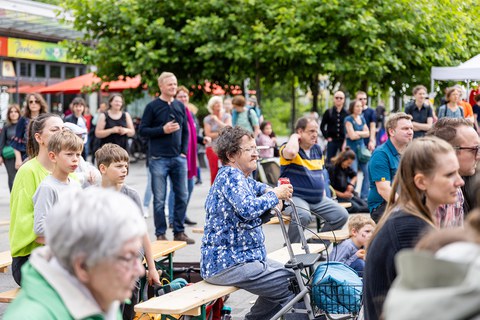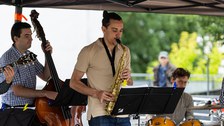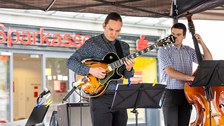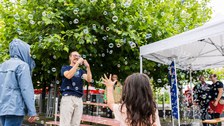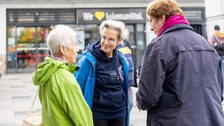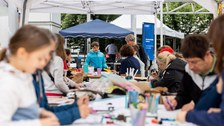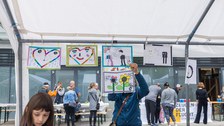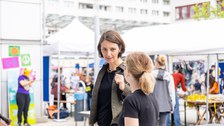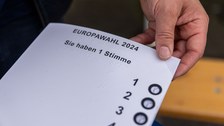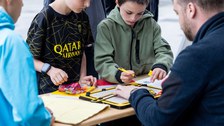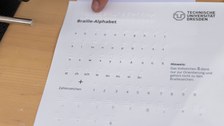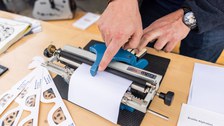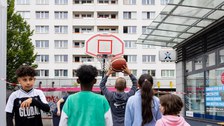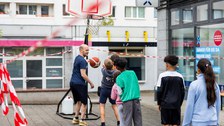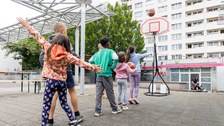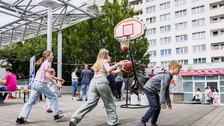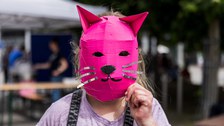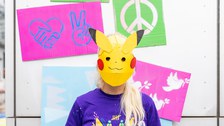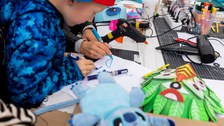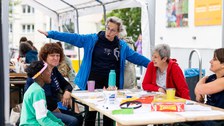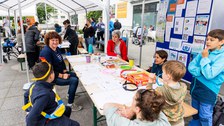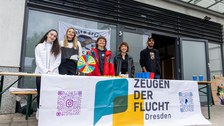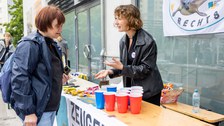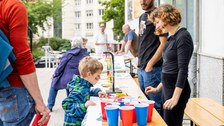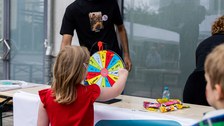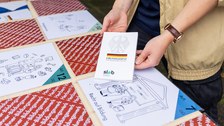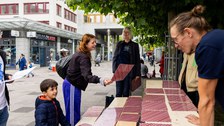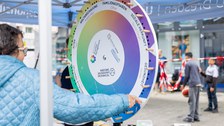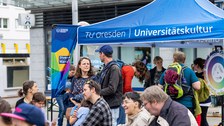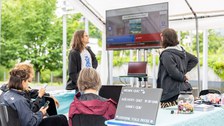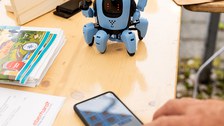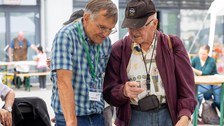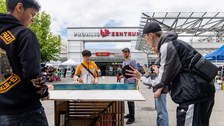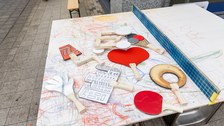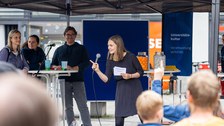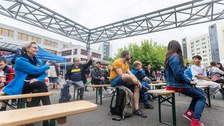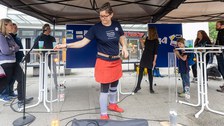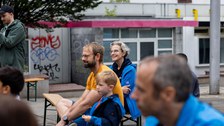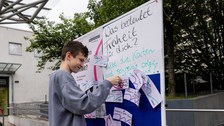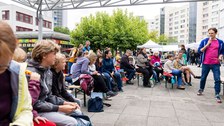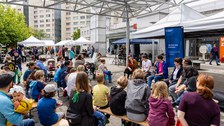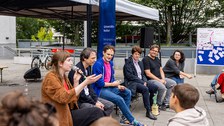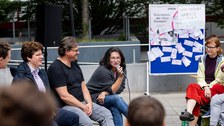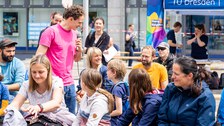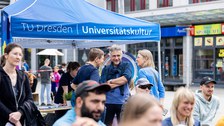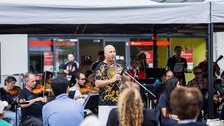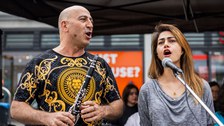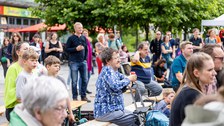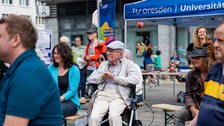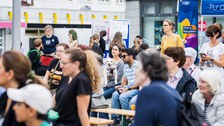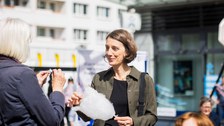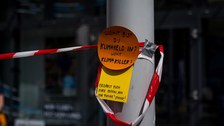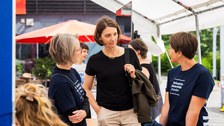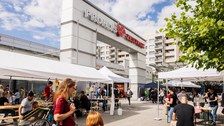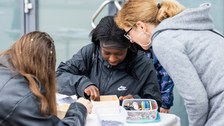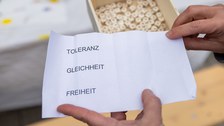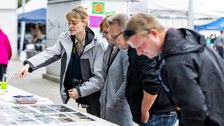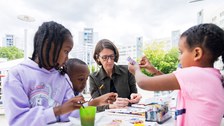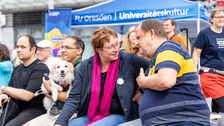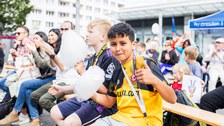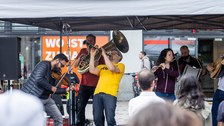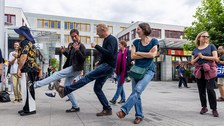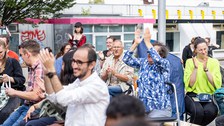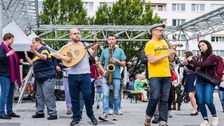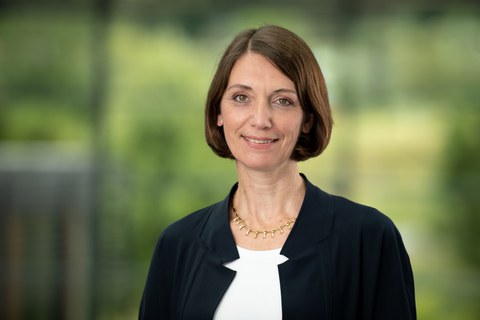Dec 12, 2024
A year of democracy and freedom
The year 2024 was marked by the anniversaries of the German Basic Law and the Peaceful Revolution: The Basic Law was proclaimed 75 years ago, and the Peaceful Revolution took place 35 years ago. To mark this special year, TUD held various events and activities, dedicating itself to promoting democracy, societal interaction, and the value of freedom. The event “United for Democracy” on May 25, 2024, was a strong signal sent by the university and other scientific and cultural institutions in the city of Dresden. Four processions began from different starting points in Dresden to meet and celebrate a festival of democracy at Dresden's Altmarkt. The institutions jointly honored the values of democracy, our free and democratic fundamental principles and the anniversaries that shaped the year. All the more so since the European Parliament elections and the municipal and state elections took place this year, and we wanted to send a clear message.
In order to pay tribute to all the anniversaries mentioned and to celebrate democracy, TUD launched the project “Democratic Freedom - Achieve, Experience, Preserve." as part of the current BMBF Science Year “Freedom.” With events and social media activities, the project invited people to participate and discuss throughout this year of democracy and freedom. This website provides an overview of the project: https://tu-dresden.de/tu-dresden/universitaetskultur/universitaet-gesellschaft/wissenschaftsjahr2024-freiheit
One of the highlights of the Year of Science was the hands-on festival in Prohlis. Here is a picture gallery for a few impressions.
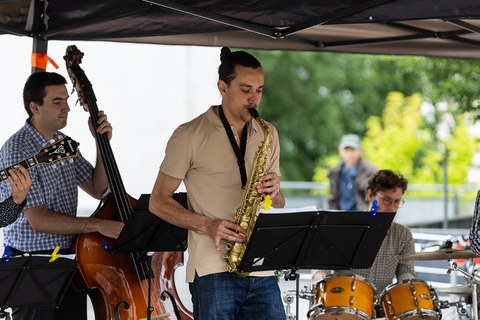
Die Jazz-Combo der TU Big Band hat das Mitmach-Fest eröffnet. © Christin Nitzsche
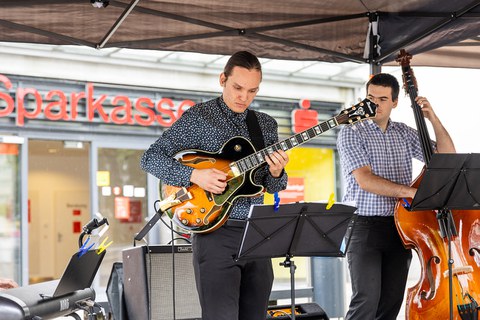
Die Jazz-Combo der TU Big Band hat das Mitmach-Fest eröffnet. © Christin Nitzsche
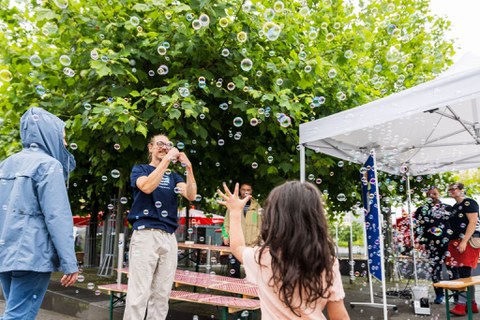
© Christin Nitzsche
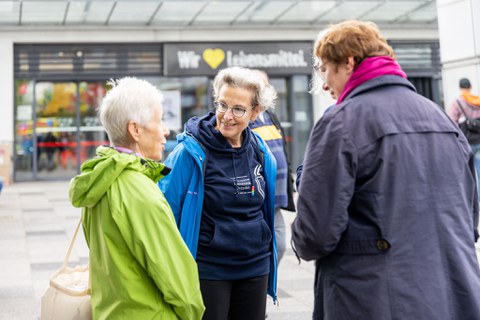
Die TUD-Rektorin Prof.in Ursula Staudinger im Gespräch. © Christin Nitzsche
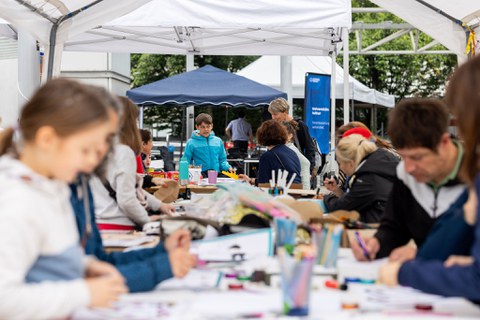
Bei einem Tape-Art-Workshop der Dresdner Künstlerin Nazanin Zandi wurde zur Auseinandersetzung mit dem Thema Vielfalt angeregt. © Christin Nitzsche
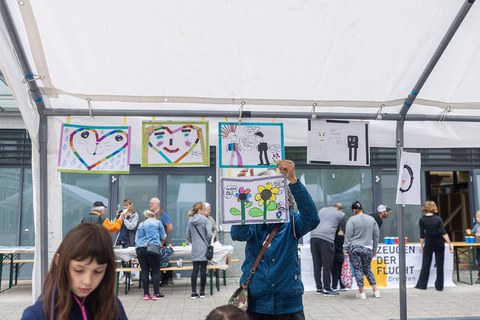
Bei einem Tape-Art-Workshop der Dresdner Künstlerin Nazanin Zandi wurde zur Auseinandersetzung mit dem Thema Vielfalt angeregt. © Christin Nitzsche
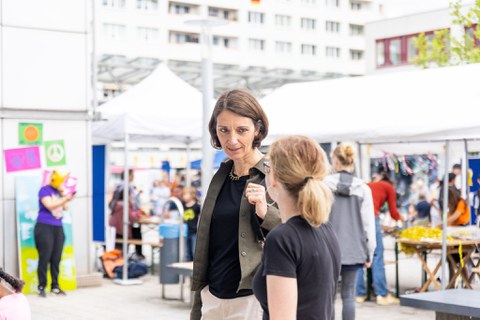
Die TUD-Prorektorin Prof.in Roswitha Böhm im Austausch. © Christin Nitzsche
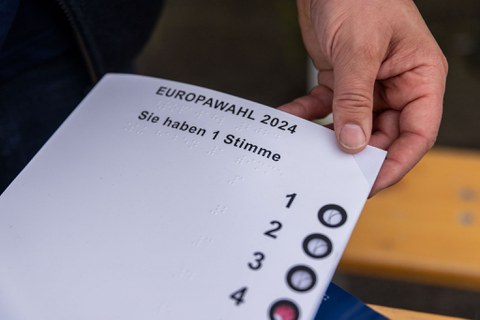
Die Arbeitsgruppe Services Behinderung und Studium von der TUD hat Hilfsmaterialien für Sehbehinderte präsentiert, die auch ausprobiert werden konnten. © Christin Nitzsche
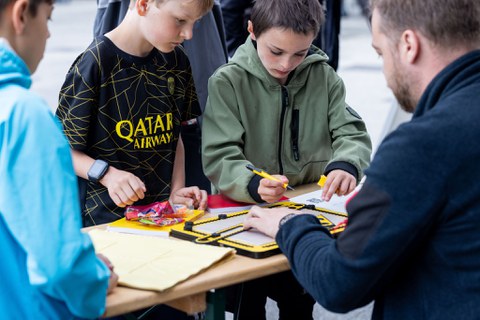
Die Arbeitsgruppe Services Behinderung und Studium von der TUD hat Hilfsmaterialien für Sehbehinderte präsentiert, die auch ausprobiert werden konnten. © Christin Nitzsche
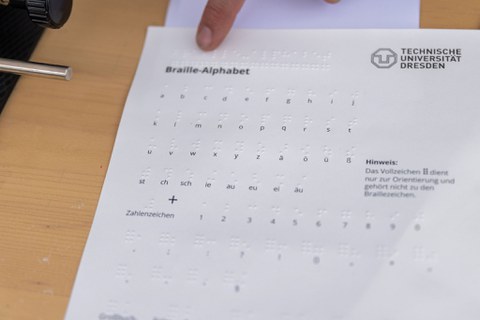
Die Arbeitsgruppe Services Behinderung und Studium von der TUD hat Hilfsmaterialien für Sehbehinderte präsentiert, die auch ausprobiert werden konnten. © Christin Nitzsche
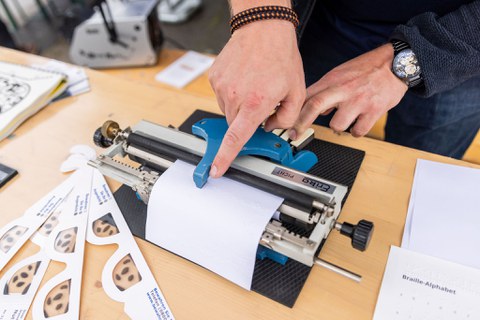
Die Arbeitsgruppe Services Behinderung und Studium von der TUD hat Hilfsmaterialien für Sehbehinderte präsentiert, die auch ausprobiert werden konnten. © Christin Nitzsche
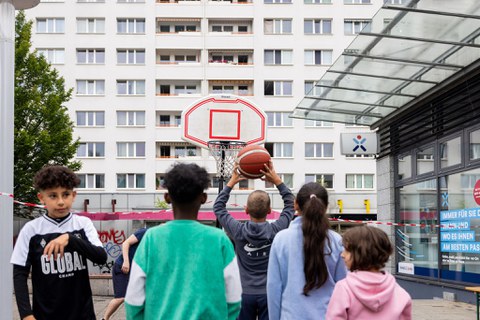
Beim Basketball spielen hat das Institut für angewandte Demokratie- und Sozialforschung demokratische Werte wie Chancengerechtigkeit und Solidarität vermittelt. © Christin Nitzsche
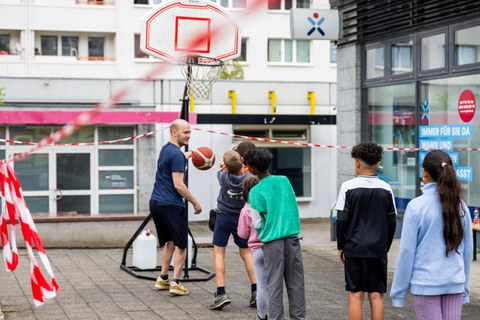
Beim Basketball spielen hat das Institut für angewandte Demokratie- und Sozialforschung demokratische Werte wie Chancengerechtigkeit und Solidarität vermittelt. © Christin Nitzsche
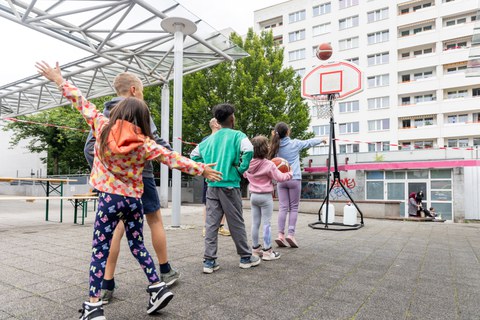
Beim Basketball spielen hat das Institut für angewandte Demokratie- und Sozialforschung demokratische Werte wie Chancengerechtigkeit und Solidarität vermittelt. © Christin Nitzsche
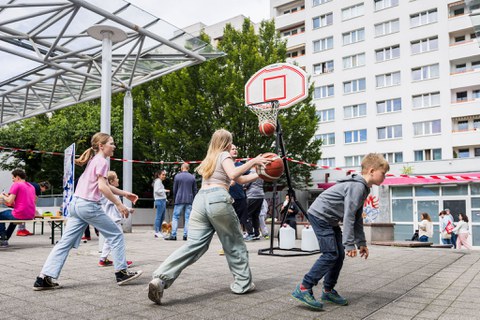
Beim Basketball spielen hat das Institut für angewandte Demokratie- und Sozialforschung demokratische Werte wie Chancengerechtigkeit und Solidarität vermittelt. © Christin Nitzsche
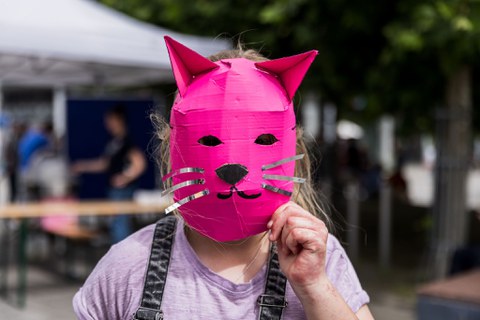
Beim Masken basteln (durchgeführt vom Medienkulturzentrum Dresden mit MUAH und Viktoria Graf) setzten Kinder sich mit dem Thema Vielfalt auseinander. © Christin Nitzsche
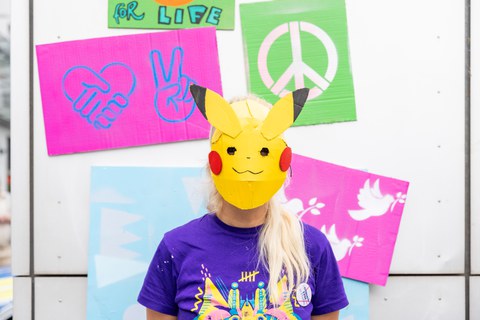
Beim Masken basteln (durchgeführt vom Medienkulturzentrum Dresden mit MUAH und Viktoria Graf) setzten Kinder sich mit dem Thema Vielfalt auseinander und konnten ihre Botschaft an die Welt gestalten. © Christin Nitzsche
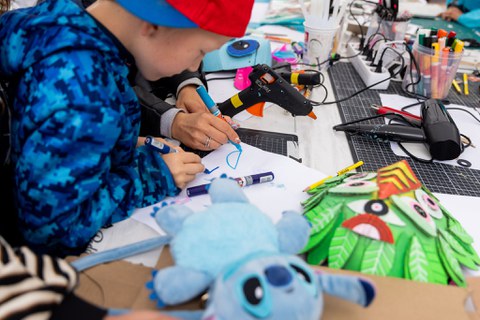
Beim Masken basteln (durchgeführt vom Medienkulturzentrum Dresden mit MUAH und Viktoria Graf) setzten Kinder sich mit dem Thema Vielfalt auseinander und konnten ihre Botschaft an die Welt gestalten. © Christin Nitzsche
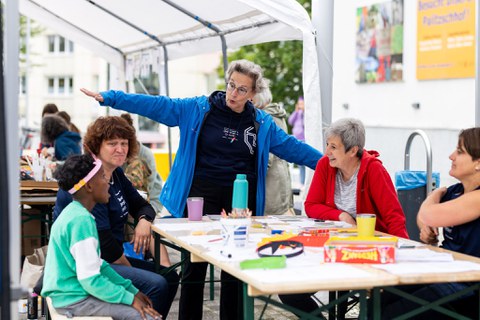
Bei dem Angebot des Zentrums für Lehrerbildung, Schul- und Berufsbildungsforschung (TUD) ging es um Mehrsprachigkeit als Ressource. © Christin Nitzsche
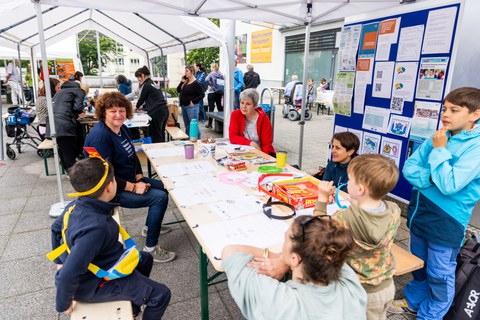
Beim Angebot des Zentrums für Lehrerbildung, Schul- und Berufsbildungsforschung (TUD) ging es um Mehrsprachigkeit als Ressource. © Christin Nitzsche
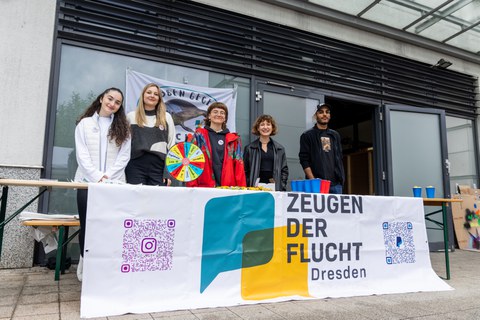
Die Gruppe „Zeugen der Flucht“ hat über die Themen Flucht und Migration informiert. © Christin Nitzsche
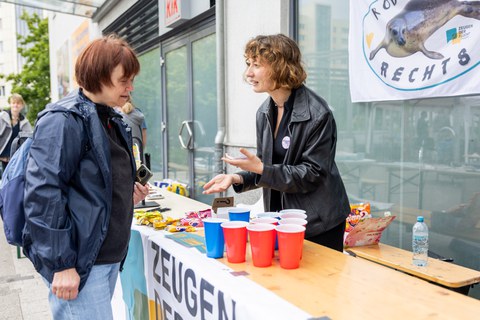
Die Gruppe "Zeugen der Flucht" hat über die Themen Flucht und Migration informiert. © Christin Nitzsche
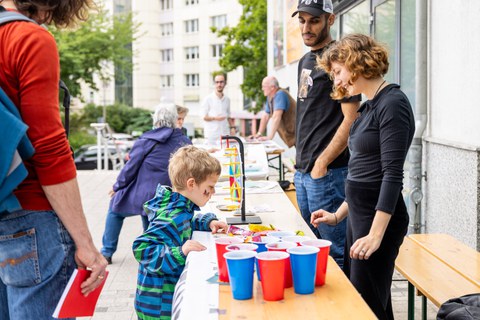
Die Gruppe "Zeugen der Flucht" hat spielerisch über die Themen Flucht und Migration informiert. © Christin Nitzsche
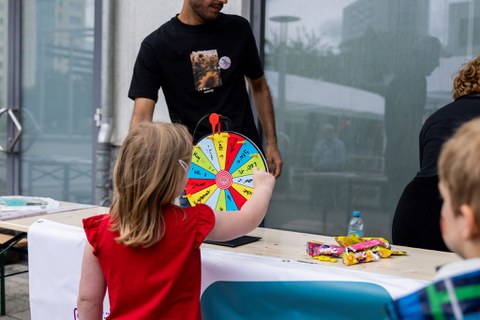
Die Gruppe „Zeugen der Flucht“ hat spielerisch über die Themen Flucht und Migration informiert. © Christin Nitzsche
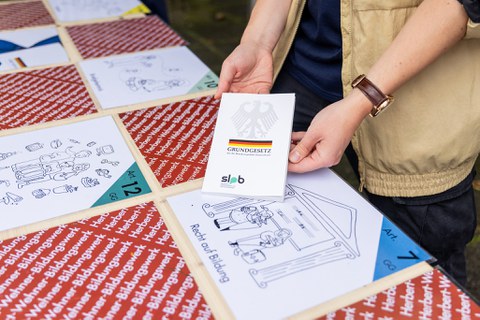
Das Grundrechte-Memory vom Herbert-Wehner-Bildungswerk regte spielerisch dazu an, sich mit den Freiheits- und Gleichheitsrechten auseinanderzusetzen. © Christin Nitzsche
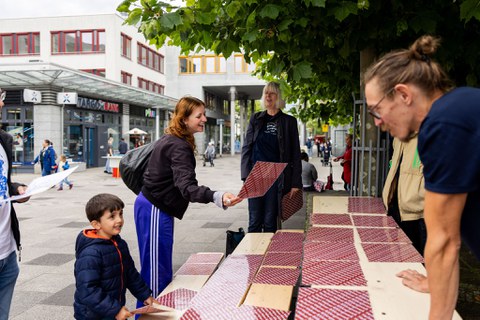
Das Grundrechte-Memory vom Herbert-Wehner-Bildungswerk regte spielerisch dazu an, sich mit den Freiheits- und Gleichheitsrechten auseinanderzusetzen. © Christin Nitzsche
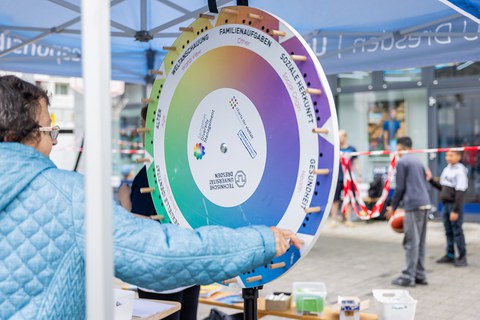
Das Glücksrad des Diversity Managements der TUD drehte sich um die Themen Vielfalt und Teilhabe. © Christin Nitzsche
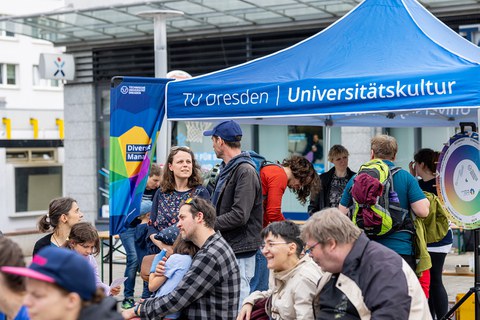
© Christin Nitzsche
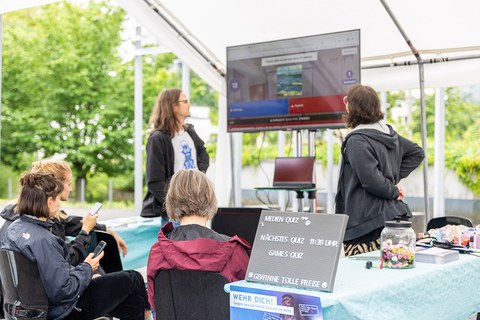
Das Medienkulturzentrum Dresden war mit medienpädagogischen Angeboten dabei. © Christin Nitzsche
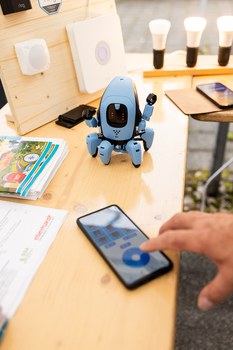
Das Medienkulturzentrum Dresden und die Dresdner Seniorenakademie sind KI-Botschafter und bilden ältere Menschen zu den Themen Smartphone, Internet und digitaler Alltag fort. © Christin Nitzsche
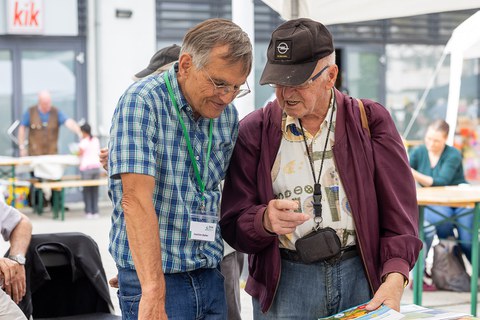
Das Medienkulturzentrum Dresden und die Dresdner Seniorenakademie sind KI-Botschafter und bilden ältere Menschen zu den Themen Smartphone, Internet und digitaler Alltag fort. © Christin Nitzsche
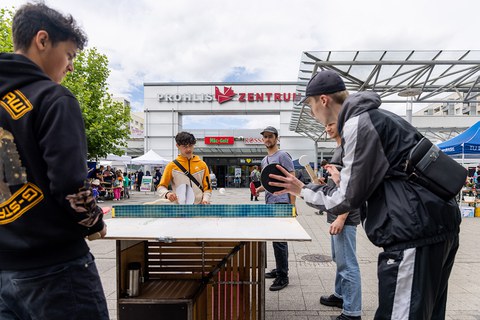
Die FOR:UM Initiative (Teil des Konglomerat e.V.) erschafft aus recycelten Materialien mobile und neue soziale Orte und zeigt so z. B. beim Tischtennisspiel, wie Bürger:innenbeteiligung auch aussehen kann. © Christin Nitzsche
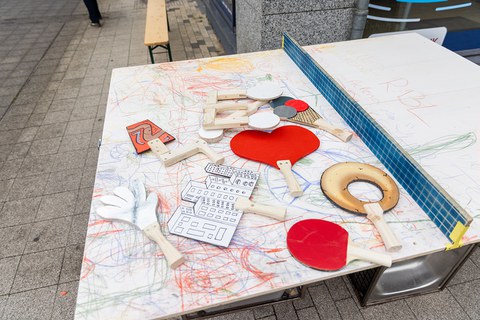
Die FOR:UM Initiative (Teil des Konglomerat e.V.) erschafft aus recycelten Materialien mobile und neue soziale Orte und zeigt so z. B. beim Tischtennisspiel, wie Bürger:innenbeteiligung auch aussehen kann. © Christin Nitzsche
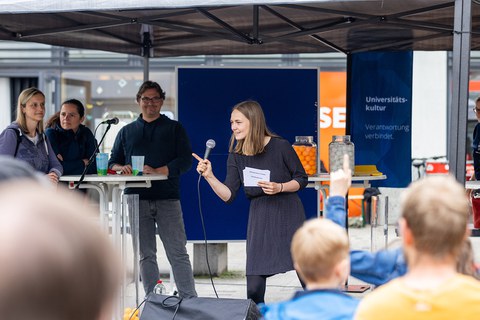
Bei einem Quiz konnten die Festbesucher:innen ihr Politikwissen testen. © Christin Nitzsche
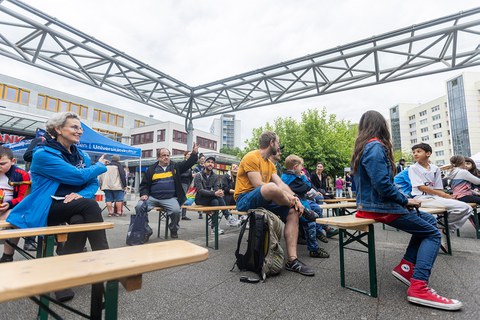
Bei einem Quiz konnten die Festbesucher:innen ihr Politikwissen testen. © Christin Nitzsche
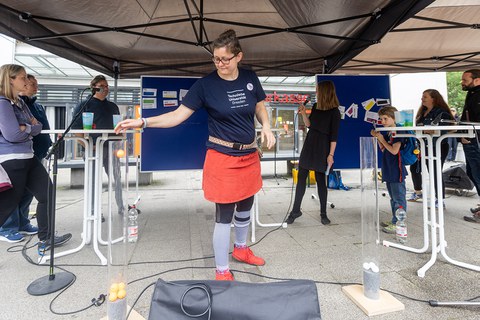
Bei einem Quiz konnten die Festbesucher:innen ihr Politikwissen testen. © Christin Nitzsche
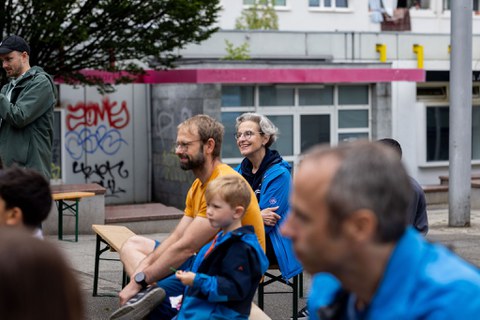
© Christin Nitzsche
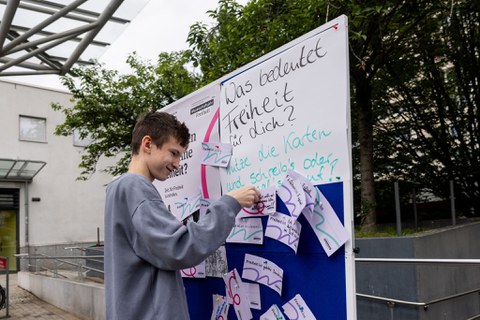
© Christin Nitzsche
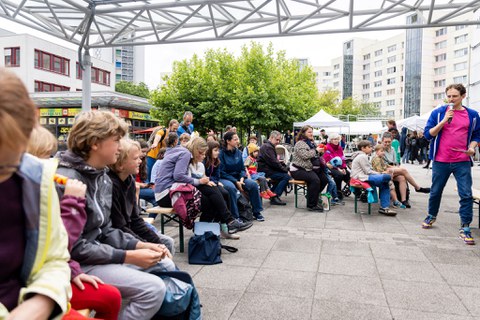
Julian Janssen (aka „Checker Julian“) besprach mit Wissenschaftler:innen und Kindern verschiedene Facetten von Freiheit. © Christin Nitzsche
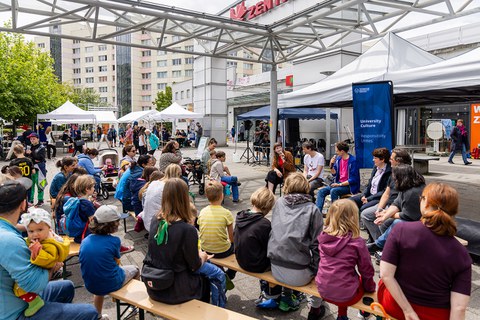
Julian Janssen (aka „Checker Julian“) besprach mit Wissenschaftler:innen und Kindern verschiedene Facetten von Freiheit. © Christin Nitzsche
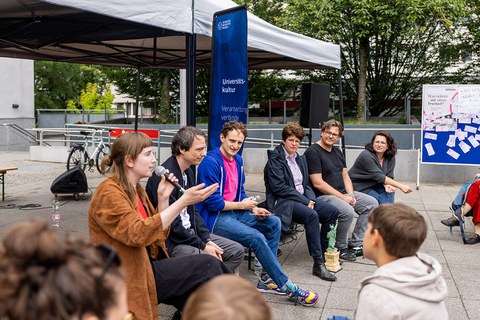
Julian Janssen (aka „Checker Julian“) besprach mit Wissenschaftler:innen und Kindern verschiedene Facetten von Freiheit. © Christin Nitzsche
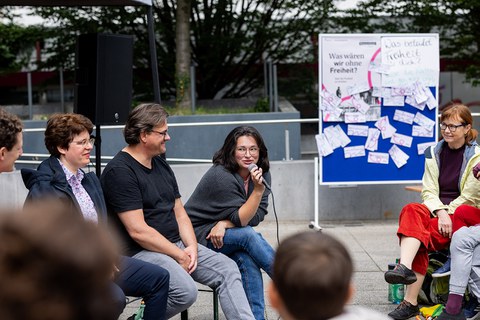
Julian Janssen (aka „Checker Julian“) besprach mit Wissenschaftler:innen und Kindern verschiedene Facetten von Freiheit. © Christin Nitzsche
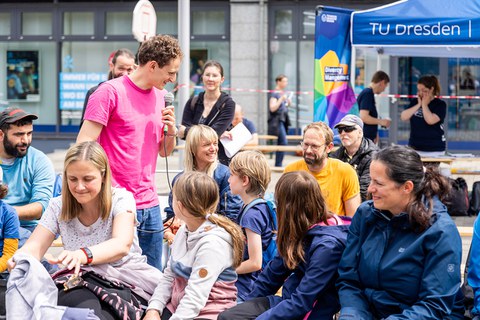
Julian Janssen (aka „Checker Julian“) besprach mit Wissenschaftler:innen und Kindern verschiedene Facetten von Freiheit. © Christin Nitzsche
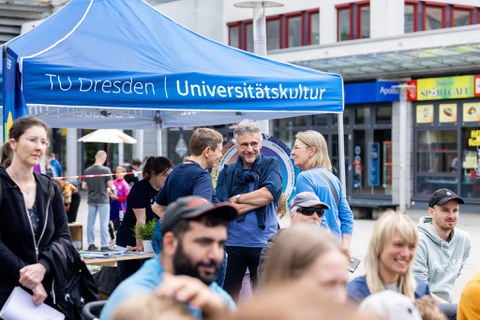
© Christin Nitzsche
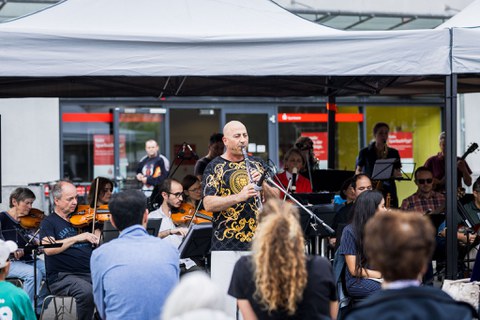
Das Paradies-Orchester, ein Projekt der Evangelischen Hochschule Dresden, spielte beim Fest. Das Orchester ist ein transkultureller Ort des Zusammenseins. Seine Musik ist die Musik der Menschen, die Teil dieses Projekts sind. © Christin Nitzsche
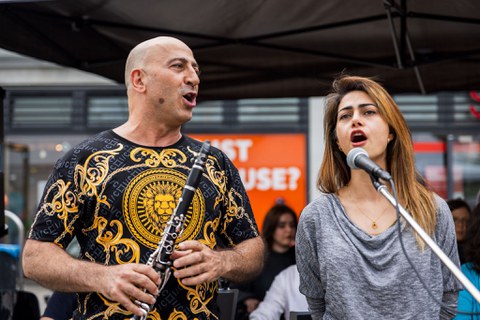
Das Paradies-Orchester, ein Projekt der Evangelischen Hochschule Dresden, spielte beim Fest. Das Orchester ist ein transkultureller Ort des Zusammenseins. Seine Musik ist die Musik der Menschen, die Teil dieses Projekts sind. © Christin Nitzsche
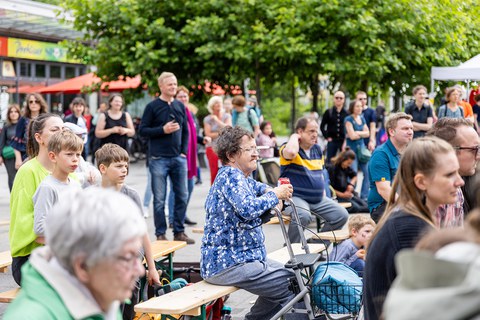
© Christin Nitzsche
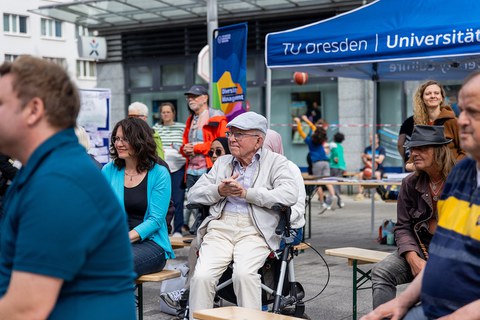
© Christin Nitzsche
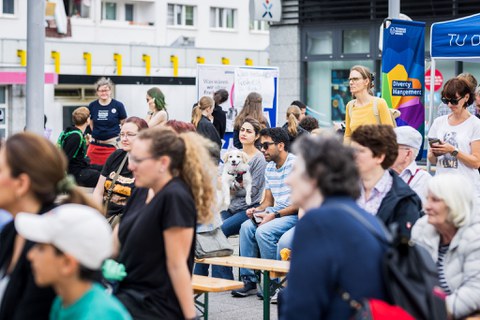
© Christin Nitzsche
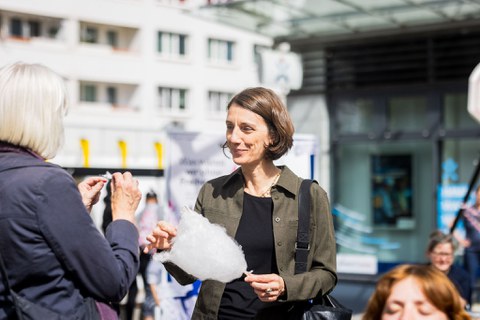
© Christin Nitzsche
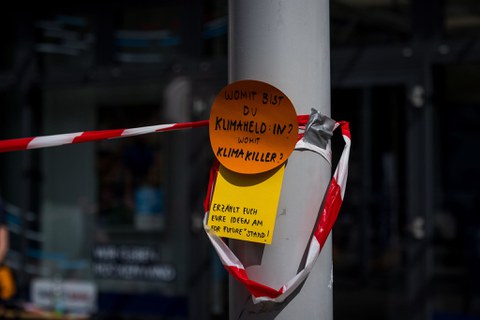
© Christin Nitzsche
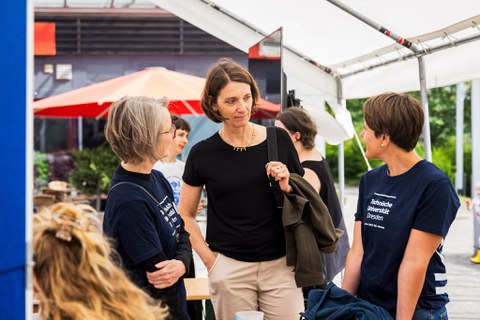
© Christin Nitzsche
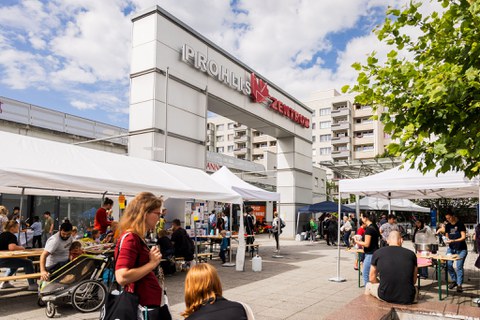
© Christin Nitzsche
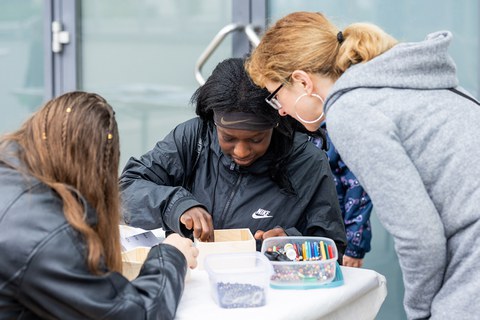
Das Netzwerk „Prohlis ist bunt“ war mit verschiedenen Mitmach-Angeboten dabei. © Christin Nitzsche
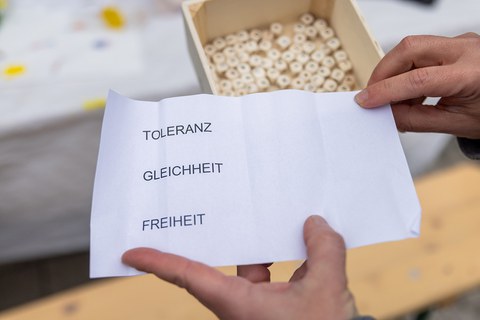
Das Netzwerk „Prohlis ist bunt“ war mit verschiedenen Mitmach-Angeboten dabei. © Christin Nitzsche
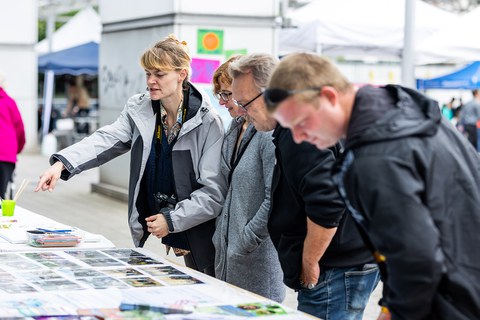
Das Netzwerk „Prohlis ist bunt“ war mit verschiedenen Mitmach-Angeboten dabei. © Christin Nitzsche
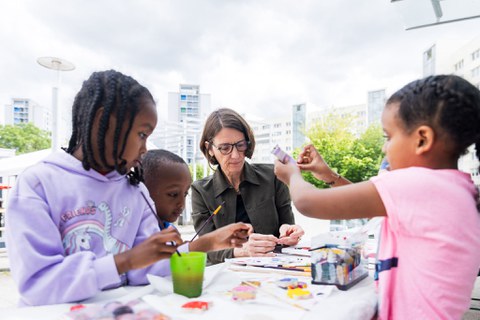
Das Netzwerk „Prohlis ist bunt“ war mit verschiedenen Mitmach-Angeboten dabei. © Christin Nitzsche
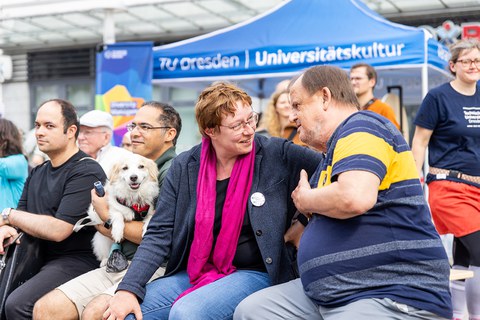
© Christin Nitzsche
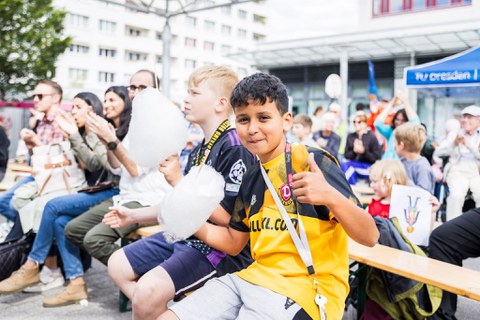
© Christin Nitzsche
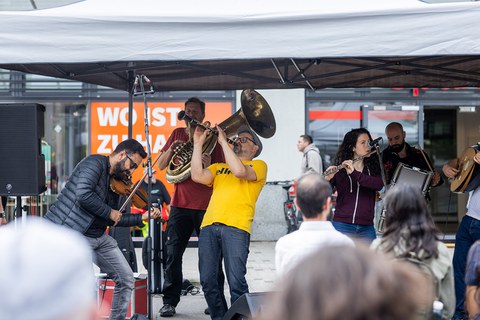
Die Dresdner Band Banda Comunale, die sich seit Jahren für Demokratie und gegen Rechtsextremismus engagiert, begeisterte die Festbesucher:innen. © Christin Nitzsche
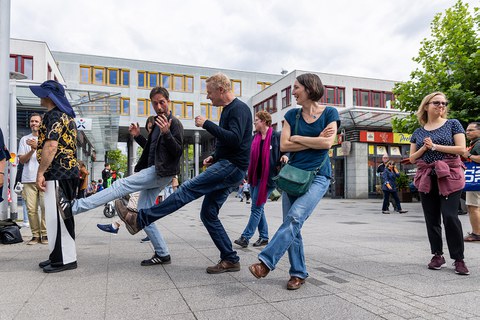
Die Dresdner Band Banda Comunale, die sich seit Jahren für Demokratie und gegen Rechtsextremismus engagiert, begeisterte die Festbesucher:innen. © Christin Nitzsche
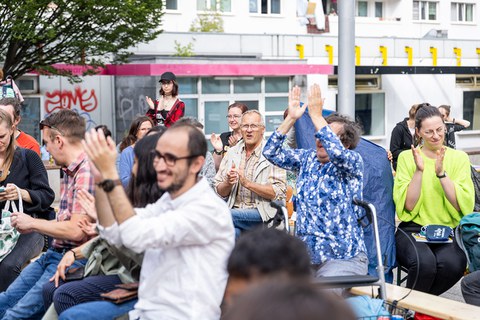
Die Dresdner Band Banda Comunale, die sich seit Jahren für Demokratie und gegen Rechtsextremismus engagiert, begeisterte die Festbesucher:innen. © Christin Nitzsche
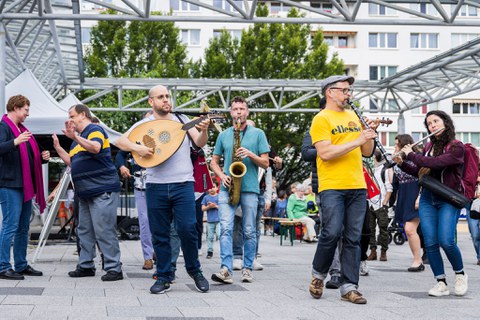
Die Dresdner Band Banda Comunale, die sich seit Jahren für Demokratie und gegen Rechtsextremismus engagiert, begeisterte die Festbesucher:innen. © Christin Nitzsche
With the excellence initiative “TUD in Dialogue,” TUD has been creating spaces for widely accessible dialogue since 2020, fostering discussion between researchers and citizens and promoting constructive debates. A list of projects funded in 2024 is available on this website: https://tu-dresden.de/tu-dresden/universitaetskultur/universitaet-gesellschaft/tud-im-dialog
One of the funded dialogue initiatives deserves special mention here: In 2024, two projects ventured to join forces: You Ask We Explain (YAW, an event and podcast series from the Faculty of Medicine – and TUD Lectures, an initiative of the Directorate University Culture since 2021.
TUD's Office for Academic Heritage, Scientific and Art Collections was also added into the mix. This is how the TUD Lectures+ series of events was created, focusing on the overarching topic of societal cohesion. Along with academic experts and musical highlights, the project team not only toured Dresden, but also parts of Eastern Saxony. In Bautzen, the focus was on climate change; in Pirna, on happiness; in Tharandt, on political education; and in Dresden, on child protection, diversity, homeland, and migration. Details on all of the topics and venues are available here: https://tu-dresden.de/tu-dresden/universitaetskultur/campusleben/tud-lectures
You can also listen to podcasts of the events: https://tu-dresden.de/med/mf/idl/dasinstitut/carl/you-ask-we-explain/podcasts
culTUre spoke with the Vice-Rector for University Culture, Prof. Roswitha Böhm, about the impressions and effects of the Year of Democracy 2024.
The Year of Science 2024 was held under the motto “Freedom” and highlighted numerous facets of democratic coexistence at the TUD. What particularly moved you personally in this context?
I was particularly impressed by the hands-on festival in Prohlis on June 15, 2024, which brought together families and people of different ages, backgrounds and interests. The diversity of the participants and the cooperation of so many committed stakeholders - from TUD experts to urban networks to the city's population - showed how democracy can be experienced in everyday life. These connections enrich our campus and urban society in equal measure and show how important it is to discuss even controversial topics with respect and openness in a democratic framework. I was also moved by the courses offered with the Civil Courage campaign, which actively involved students in democratic and political thinking. The fact that our Department of University Culture was involved in this makes it all the more remarkable and desirable to repeat it.
Which approaches or initiatives from the Year of Democracy do you consider to be particularly forward-looking in order to strengthen the democratic culture at the TUD itself, but also beyond the campus in the long term?
It is essential to continue the multi-layered discussions and to take them beyond the campus into the city and rural areas. Formats such as the “TUD Lectures” make a valuable contribution here. In addition, I believe that courses with a social focus, such as the collaboration with Aktion Zivilcourage, are forward-looking. We should not only repeat these, but also extend them to new target groups such as employees - for example via the Center for Continuing Education. Similarly, argumentation training for dealing with populist and extremist tendencies should be firmly included in our agenda. And finally, cooperation, for example with the SLUB, the Deutsches Hygiene-Museum Dresden or foundations and associations, forms an important basis for a vibrant democratic culture and should be intensified.
What steps do you think are necessary to ensure that the TUD remains a place that actively promotes democracy and resolutely opposes populist and extremist tendencies?
We need a determined interplay of prevention, education and commitment. Prevention means defining and living clear values - such as in the action plan against anti-democratic challenges that we are currently working on. Education includes formats that promote critical thinking and open exchange, also in the sense of education for sustainable development. And commitment requires us as a university to take responsibility - both internally, for example through inclusive campus life, and externally through dialog with society. We should also make the TUD's position for the free democratic basic order more visible, be it through innovative event formats or targeted social media initiatives. At the same time, we can involve all status groups more strongly in voluntary work - programs such as “TUD engagiert” offer good approaches here. Finally, as envisaged in the sTUDium 3.0 teaching strategy, I believe it is essential for all students to acquire core skills with a socio-political focus, such as gender, diversity or sustainability skills. Such an offer sensitizes students to the challenges of our time and strengthens them as responsible citizens. Together, we can create a university that not only actively promotes democracy, but also sees it as an integral part of its identity.

